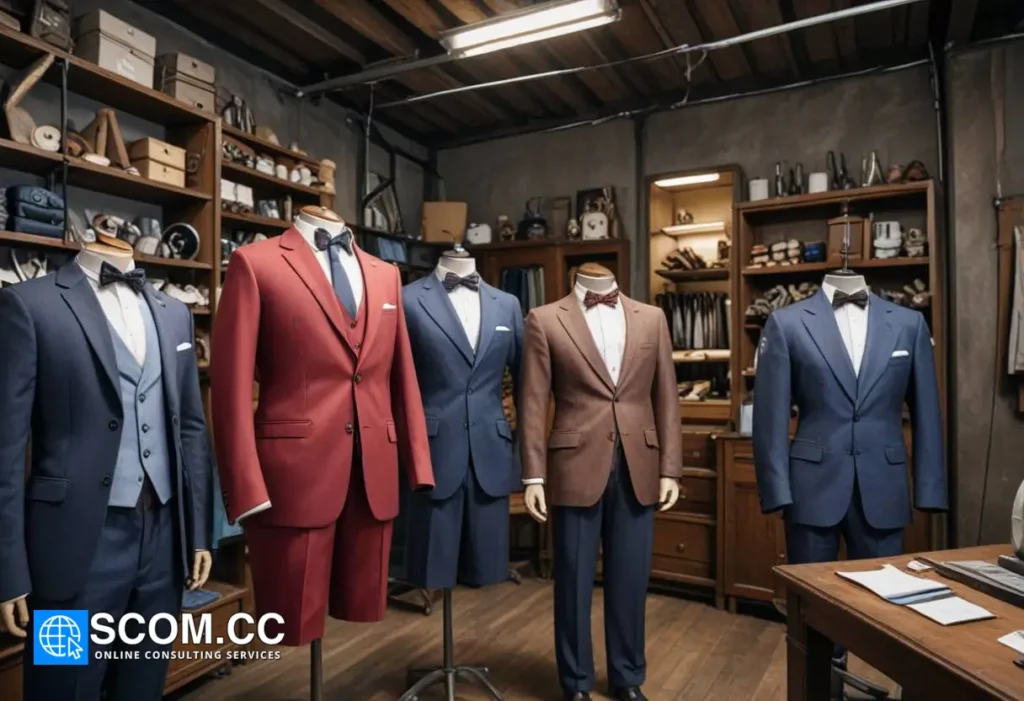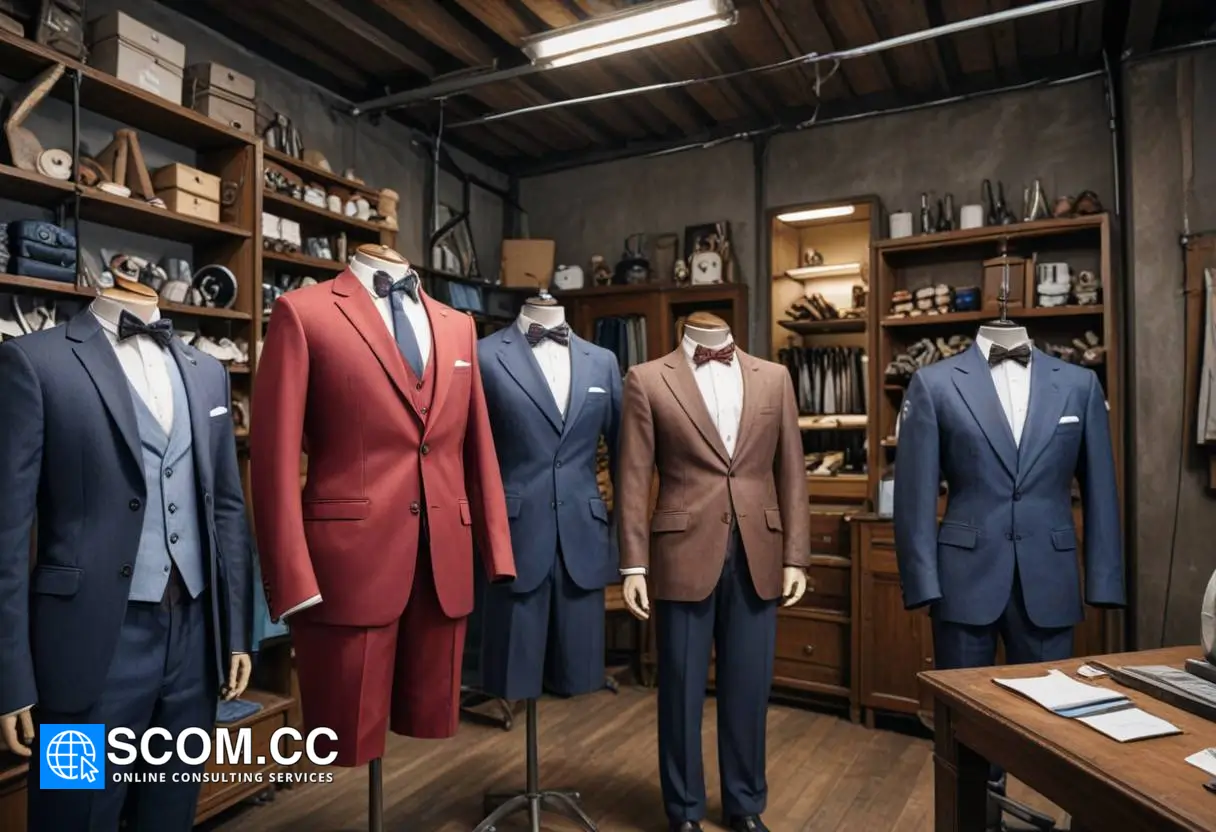New Trends in Tailoring: What’s Hot Right Now

- New Trends in Tailoring: What’s Hot Right Now
- Sustainable Tailoring: Eco-Friendly Elegance
- Technology in Tailoring: The Digital Revolution
- Gender-Neutral Tailoring: Breaking Boundaries
- Modern Silhouettes and Creative Cuts
- Tailoring with a Personal Touch: Customization and Personalization
- The Return of Vintage and Heritage Tailoring
- Conclusion
New Trends in Tailoring: What’s Hot Right Now
Tailoring, once seen as a traditional craft, is experiencing a modern-day renaissance. From the boardroom to the runway, tailoring has evolved into a dynamic form of personal expression, blending innovation with classic craftsmanship. In this article, we explore the new trends in tailoring that are reshaping fashion right now. From sustainable practices to tech-infused tailoring, discover what’s hot in the world of bespoke fashion.
Sustainable Tailoring: Eco-Friendly Elegance
The Rise of Sustainable Materials
Sustainability is no longer just a buzzword in fashion; it's becoming a core value in tailoring. Designers are increasingly turning to eco-friendly materials such as organic cotton, recycled fabrics, and ethically sourced wool. These materials not only reduce environmental impact but also offer luxurious quality.
Slow Fashion and Bespoke Tailoring
The slow fashion movement emphasizes quality over quantity, and bespoke tailoring fits perfectly within this ethos. Custom-made garments are designed to last, reducing the need for fast fashion purchases. Clients are opting for tailored pieces that offer timeless style and longevity, making sustainability a fashionable choice.
Eco-Conscious Production Techniques
Tailors and designers are also adopting sustainable production techniques, such as minimizing fabric waste and using natural dyes. This commitment to sustainability is redefining the future of tailoring, making it more responsible and environmentally friendly.
Technology in Tailoring: The Digital Revolution
Virtual Fittings and 3D Measurements
One of the most exciting developments in tailoring is the integration of technology. Virtual fittings and 3D body scanning are revolutionizing the way garments are tailored. Clients can now receive precise measurements without ever setting foot in a tailor's shop. This technology not only ensures a perfect fit but also makes the tailoring process more accessible to a global audience.
3D Printing in Tailoring
3D printing is emerging as a game-changer in tailoring. Designers are using this technology to create intricate patterns, embellishments, and even entire garments. 3D printing allows for unparalleled customization and precision, taking bespoke tailoring to new heights.
AI and Tailoring
Artificial intelligence (AI) is making its mark in tailoring by predicting trends, analyzing customer preferences, and optimizing the tailoring process. AI-driven design tools help tailors create garments that are both trendy and perfectly suited to individual clients. This fusion of technology and craftsmanship is shaping the future of fashion.
Gender-Neutral Tailoring: Breaking Boundaries
The Rise of Androgynous Fashion
Fashion is increasingly embracing gender fluidity, and tailoring is no exception. Gender-neutral tailoring blurs the lines between traditional menswear and womenswear, offering versatile pieces that can be worn by anyone. This trend is all about freedom of expression and challenging traditional fashion norms.
Custom Tailoring for All Genders
Tailors are now creating bespoke garments that cater to all gender identities. From tailored suits to unisex coats, this trend allows clients to choose pieces that reflect their personal style without being confined to gender-specific designs.
Inclusivity in Tailoring
Inclusivity is becoming a priority in fashion, and tailoring is leading the charge. Tailors are expanding their offerings to include a wider range of body types, ensuring that everyone can experience the luxury of a perfectly fitted garment. This shift towards inclusivity is making custom tailoring more accessible and appealing to a diverse clientele.
Modern Silhouettes and Creative Cuts
Relaxed Fits and Oversized Designs
Gone are the days of strictly fitted suits. Relaxed tailoring is taking the fashion world by storm, with oversized blazers, wide-leg trousers, and unstructured silhouettes dominating the runway. This trend is all about comfort and ease, offering a more laid-back approach to traditional tailoring.
Asymmetry and Deconstructed Tailoring
Asymmetry and deconstructed tailoring are pushing the boundaries of traditional design. Think uneven hems, mismatched lapels, and unconventional cuts. These bold designs challenge the status quo and offer a fresh perspective on what tailored clothing can be.
Minimalist Tailoring
While some designers are embracing bold, deconstructed looks, others are opting for minimalist tailoring. Clean lines, simple silhouettes, and understated elegance define this trend. Minimalist tailoring focuses on the beauty of craftsmanship and the perfect fit, without the need for excessive embellishments.
Tailoring with a Personal Touch: Customization and Personalization
Bespoke Embroidery and Monogramming
Personalization is at the heart of modern tailoring. Clients are seeking unique details that make their garments truly one-of-a-kind. Bespoke embroidery, monogramming, and custom linings are just a few of the ways tailors are adding a personal touch to their creations.
Fabric Selection and Custom Patterns
Another key trend in tailoring is offering clients more control over the design process. From selecting the fabric to choosing custom patterns, clients are more involved than ever in creating their bespoke garments. This level of customization ensures that each piece is a true reflection of the wearer's personal style.
Storytelling Through Tailoring
Some designers are taking personalization to the next level by incorporating storytelling into their tailoring. Clients can choose to include elements that reflect their heritage, milestones, or personal narratives. This trend adds a deeply meaningful dimension to bespoke fashion.
The Return of Vintage and Heritage Tailoring
Vintage-Inspired Tailoring
The resurgence of vintage-inspired tailoring is bringing classic styles back into the spotlight. From 1920s flapper dresses to 1970s power suits, designers are drawing inspiration from the past to create modern garments with a nostalgic twist.
Heritage Fabrics and Techniques
Heritage fabrics like tweed, houndstooth, and flannel are making a comeback, with tailors using traditional techniques to create contemporary designs. This trend emphasizes the importance of craftsmanship and the enduring appeal of classic tailoring.
Reviving Traditional Tailoring Houses
As interest in vintage and heritage tailoring grows, many traditional tailoring houses are experiencing a revival. These institutions, known for their impeccable craftsmanship and timeless designs, are finding new relevance in today's fashion landscape.
Conclusion
The world of tailoring is undergoing a transformative period, with new trends that reflect the changing values and desires of modern consumers. From sustainable practices and technological advancements to gender inclusivity and personalization, tailoring is more dynamic and innovative than ever. Whether you prefer classic styles or cutting-edge designs, the latest trends in tailoring offer something for everyone.

To explore more about tailoring, visit our Blog of Tailoring. If you have any questions or need assistance, go to our contact page. Additionally, you can find more information about tailoring and consulting at this tailoring and consulting portal.

Leave a Reply